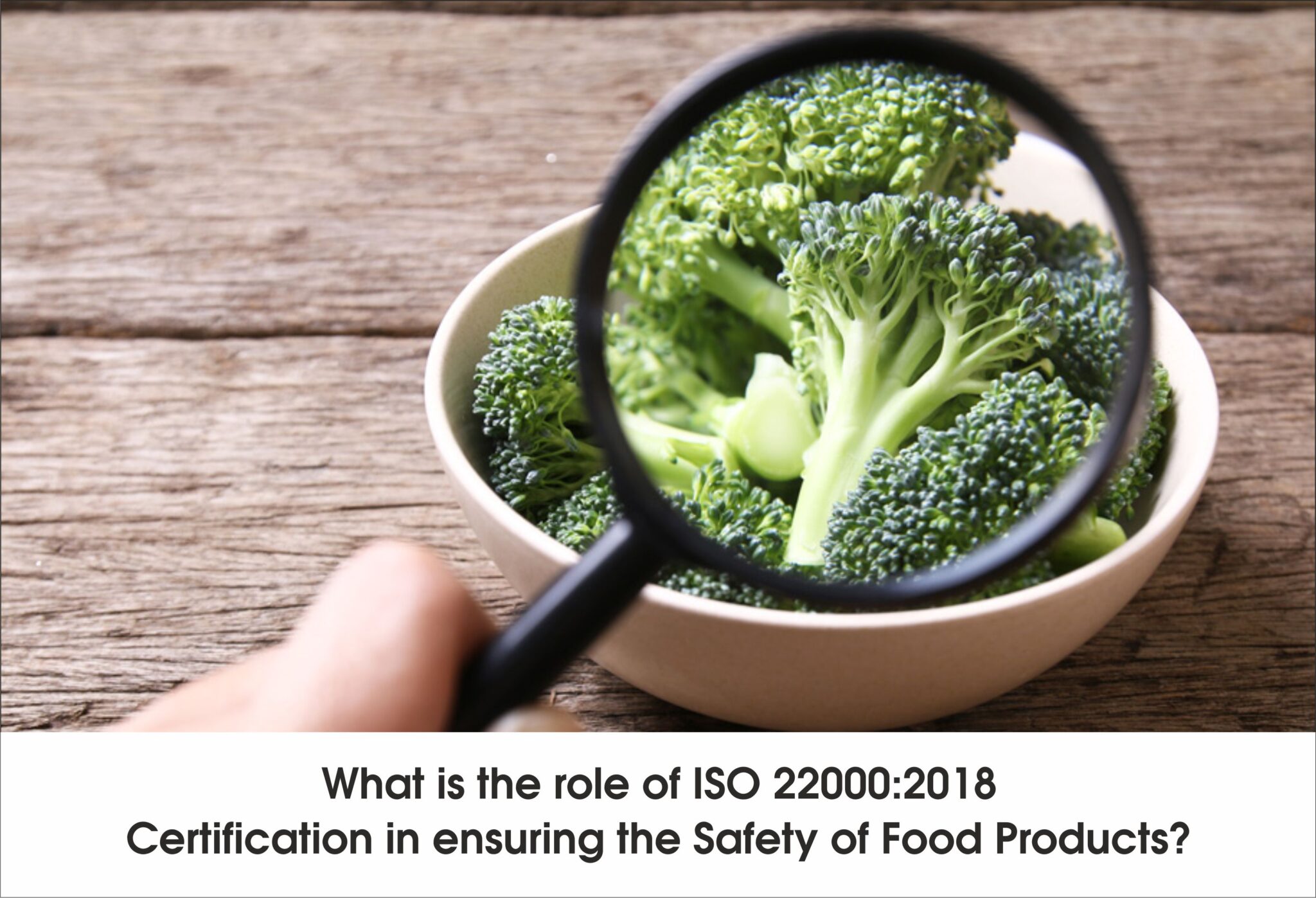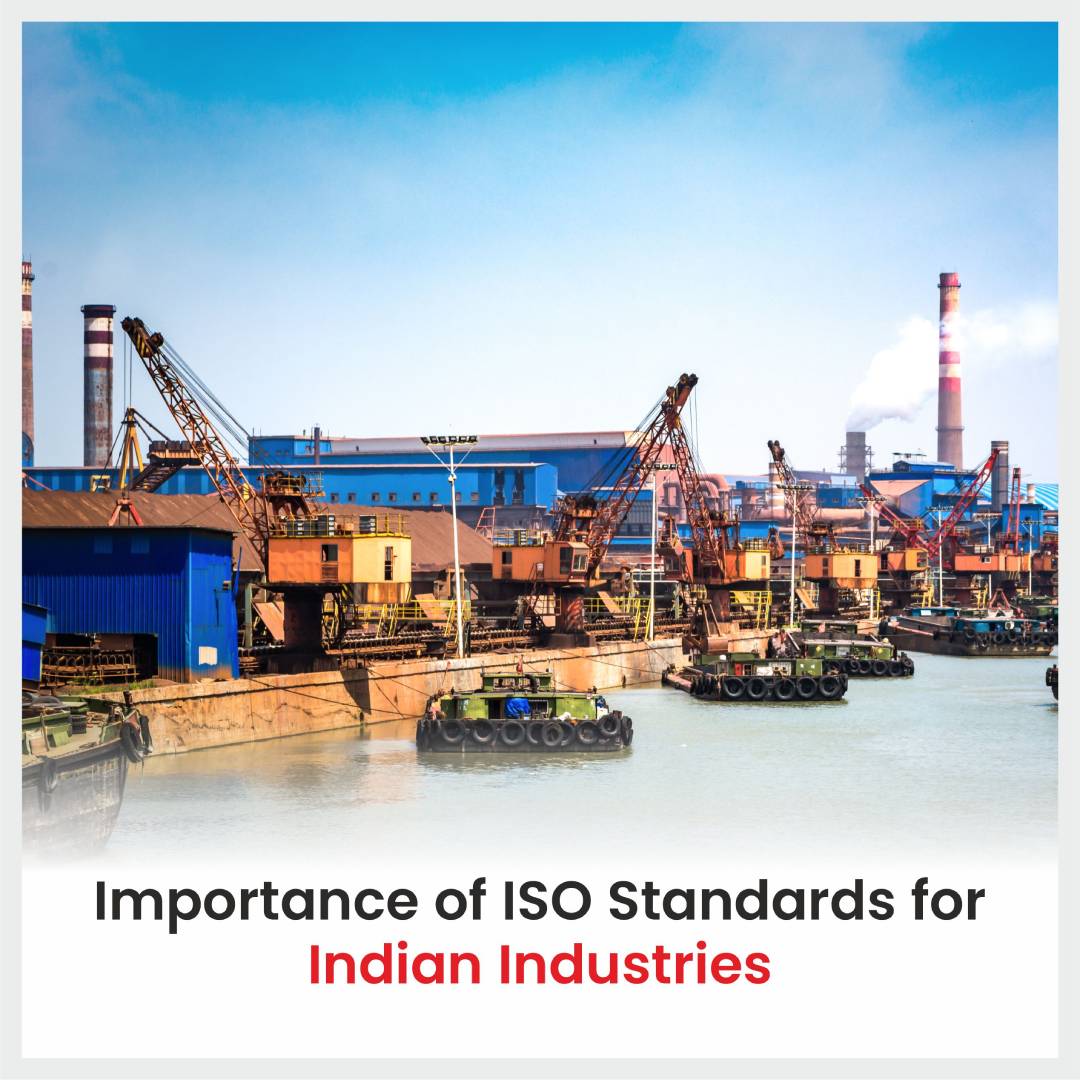The common concern shared by customers and food supply chain industries is related to the safety and quality of food products. Food safety is significant for public health and the reputation of food companies. Moreover, it is the responsibility of organisations to ensure the delivered food people are safe and free from contamination. The International Organisation for Standardisation (ISO) has developed ISO 22000:2018 certification. Furthermore, the standard mandates organisations to maintain and measure the security and quality of food products. In this blog, you will read about the importance of ISO 22000 and how it contributes to preserving the quality and safety of food items.
What is ISO 22000 Certification?
ISO 22000 is a globally known for Food Safety Management Systems (FSMS). The certification provides a robust framework for establishing, putting into practice, and maintaining a reliable food safety management system. Moreover, it includes organisations involved in the food supply chain, from farmers and food manufacturers to merchants and food service providers, who must adhere to ISO 22000 requirements
The role of ISO 22000 Standards in ensuring Food Safety ⮯
ISO 22000 provides a systematic framework for food industries to ensure and maintain food safety. It mandates organisations to establish hazard analysis, preventive measures, traceability, communication, and continuous improvement to reduce risks of contamination and illnesses.
- Hazard Analysis: ISO 22000:2018 mandates an organisation to conduct a risk assessment to outline potential food safety hazards and threats. Moreover, it involves identifying and detecting potential dangers at all stages of the food supply chain. Hazards can be biological, chemical, and contaminants, and HACCP helps organisations take proactive measures to mitigate them.
- Preventive Measures: Organisations must follow ISO 22000 guidelines and implement preventative measures to identify and manage risks. These precautions could include sanitation protocols, hygiene standards, and quality assurance tests. Moreover, it reduces the likelihood of contamination and foodborne illnesses.
- Traceability: The standard mandates organisations to follow the principle of traceability to establish a safe food supply chain. As a result, it enables businesses to monitor and trace the movement of food products along the supply chain. Through traceability, it is possible to rapidly locate potential hazards concerning food safety and address them accordingly.
- Communication: Effective communication is a significant component to ensure success. ISO 22000:2018 standard requires an organisation to establish productive communication within the company and with outside parties like clients and suppliers. Moreover, it focuses on imparting information about potential threats to food safety, protective measures, and any modifications to procedures or goods clearly and concisely.
- Continuous Improvement: The principle of continuous improvement requires an organisation to continuously examine and upgrade its food safety management systems to reflect new information and conditions.
- Compliance with Legal Requirements: ISO 22000 helps organisations maintain and measure compliance with national and international laws and regulations related to food safety. Moreover, it helps food industries to adhere to legal obligations and avoid legal issues and penalties.
Benefits of ISO 22000:2018 Standards ⮯
ISO 22000 offers numerous benefits to the food industry. Moreover, it assures consumers of safer products while boosting organizations’ competitiveness and trustworthiness in the food industry. The following are the benefits of the Food Safety Management Systems (FSMS) :-
- Establishes a safe food supply chain: Implementing ISO 22000 assists businesses in reducing the risk of foodborne illnesses by implementing appropriate preventive measures. It provides tools and controls for organisations to trace the food supply chain, from farmers and manufacturers to distributors.
- Creates a better reputation: ISO 22000 Certification is a hallmark of trust and reliability. Hence, an organisation with an FSMS certificate increases the brand value of an organisation by demonstrating its commitment to food safety.
- Access to the global market: ISO 22000:2018 certification exhibits an organisation’s commitment to international best practices. However, many merchants and customers prefer ISO-certified companies to conduct business with or buy goods.
- Cost savings: It helps organisations avoid food safety accidents. However, businesses can save money by avoiding expensive product recalls, legal disputes, and harm to their reputation.
Conclusion ✅
ISO 22000 is essential to assure the safety and quality of food items. Additionally, it facilitates effective communication, fosters continuous development, and aids organisations in identifying and controlling risks to food safety. Organisations with an ISO 22000 certification can offer consumers safer food products and improve their reputation in the global food market.




